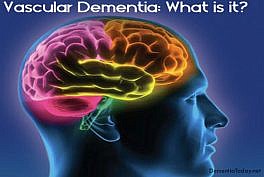Alzheimer’s disease: are we close to finding a cure?
First described in 1906 by Dr. Alois Alzheimer, Alzheimer’s disease is the most common form of dementia, accounting for around 60-80% of cases. It is characterized by problems with memory, thinking and behavior.
Onset is most common in individuals aged 65 and over, although people in their 40s and 50s can develop what is classed as early-onset Alzheimer’s.
Alzheimer’s is a progressive disease, meaning memory loss is mild in the beginning, but it worsens over time to the extent that individuals are unable to have conversations or respond to their surroundings.
There are treatments that have been approved by the US Food and Drug Administration (FDA) for Alzheimer’s. For example, cholinesterase inhibitors and memantine can help treat memory and thinking problems. But these drugs just help manage the symptoms; there is currently no cure for the disease.
In the US, around 5 million people aged 65 and over are living with Alzheimer’s, the majority of whom are women. This number is expected to almost triple to 16 million by 2050. Figures are similar worldwide; by 2050, more than 115 million people are expected to have the disease.
Current Alzheimer’s prevalence in the US makes it the 6th leading cause of death, killing more than half a million seniors every year. To put this in perspective, Alzheimer’s disease currently kills more people each year than prostate cancer and breast cancer combined.
Heather Snyder, PhD, director of medical and scientific operations at the Alzheimer’s Association, stated an interesting fact when talking to Medical News Today:

This is certainly not through lack of trying. In the last month alone, we have reported how scientists restored memory and learning deficits in Alzheimer’s mouse models, how vitamin D deficiency could increase the risk of developing dementia, and how DNA methylation in the brain is linked to Alzheimer’s.
But what have these studies taught researchers about Alzheimer’s so far?
Preventing and targeting plaques and tangles
As with all diseases, knowing exactly what causes Alzheimer’s is key to identifying ways to prevent and treat the condition.
Past research has indicated that Alzheimer’s occurs when two abnormal brain structures – plaques and tangles – damage and kill nerve cells, causing the memory, thinking and behavioral problems associated with the disease.
Plaques are fragments of a protein called beta-amyloid, which build up in areas between nerve cells. Tangles are twisted fibers of a protein called tau, which accumulate inside brain cells.
Although the jury is still out on the exact roles plaques and tangles play in the development of Alzheimer’s, studies have suggested that build up of these proteins begins long before symptoms develop.
“Evidence suggests that the process of Alzheimer’s disease begins more than a decade before clinical symptoms appear, suggesting we may need to intervene earlier to have a major impact on the course of the disease, particularly when using therapies designed to prevent the development of abnormal protein structures – plaques and tangles – that are abundant in the brains of people with Alzheimer’s,” says Snyder.
{pagebreak}
Other research has suggested that targeting these abnormal structures could treat Alzheimer’s. Earlier this year, Medical News Today reported on a study by researchers from the University of California-Irvine, suggesting that increasing brain cell connections could reduce plaque accumulation.
“If amyloid accumulation is the driving cause of Alzheimer’s disease, then therapies that either decrease amyloid-beta production or increase its degradation could be beneficial, especially if they are started early enough,” says the first author of this study, Mathew Blurton-Jones.
Some studies claim that lifestyle factors may be a driver of plaques and tangles typical of Alzheimer’s. Research from Temple University in Philadelphia, PA, for example, suggests that chronic sleep deprivation may cause these abnormal brain structures. Another study suggests regular caffeine consumption could halt development of tangles, while research from the Icahn School of Medicine at Mount Sinai in New York, NY, claims eating grilled meat can increase the development of plaques.
Alzheimer’s and genes
More recently, researchers have found evidence that genes play an important role in the development of Alzheimer’s.
Studies have shown that the majority of early onset Alzheimer’s cases are inherited – a form of the condition known as familial Alzheimer’s disease (FAD).

FAD can be caused by one of an array of gene mutations found on chromosomes 21, 14 and 1. Researchers have found that these gene mutations can lead to the development of abnormal proteins in the brain. For example, mutations on chromosome 21 can cause formation of abnormal amyloid precursor protein (APP).
According to the National Institute on Aging (NIA), such findings so far have helped researchers better understand how brain abnormalities form in early-onset Alzheimer’s. They have also led to the development of imaging tests that can show how abnormal proteins build up in the living brain.
When it comes to late-onset Alzheimer’s, studies have associated a gene called apolipoprotein E (APOE) to its development. One form of the gene in particular – APOE E4 – has been linked to an increased risk of the disease. Most recently, a study reported by Medical News Today claims that women with a variant of this gene are more likely to develop Alzheimer’s than men.
Last year, a study published in Nature Genetics revealed the discovery of 11 genes that may increase a person’s risk of Alzheimer’s, while another study found a variation in the ABCA7 gene that may increase the risk of Alzheimer’s in African-Americans.
Exactly how these genes increase Alzheimer’s risk is not yet understood. But every gene that is linked to Alzheimer’s can increase researchers’ understanding of how the disease develops, therefore raising the likelihood of finding ways to prevent and treat the condition.
{pagebreak}
Research progress provides ‘reasons to be hopeful’
It seems there is more focus on Alzheimer’s research than ever before, and a great deal of progress has been made as a result.
The last 20 years alone have seen the discovery of the role beta-amyloid and tau proteins play in Alzheimer’s, FDA approval of the first Alzheimer’s drug for memory and thinking symptoms, the first Alzheimer’s mouse model and the first potential blood test for Alzheimer’s.
As a result of Alzheimer’s research, there are an array of drugs in development that scientists believe have great potential to effectively treat the disease.
Talking to Medical News Today, Dr. Laurie Ryan, of the Division of Neuroscience at the NIA, said that there are “reasons to be hopeful” when it comes to finding effective treatments for Alzheimer’s.
“Advances in imaging now allow us to ‘see’ Alzheimer’s pathology in the living brain, and over the past few years, genome-wide association studies have identified gene variants that appear to play a role in the disease and may be targeted for interventions,” she noted. “We are testing a number of potentially promising interventions, from exercise, to hormones, to newly funded prevention trials.”
Lack of research funding and volunteers ‘hampers’ progress

Although there has been good progress in the Alzheimer’s research field, organizations believe there is a lot more that needs to be done, particularly when it comes to funding.
James Pickett, head of research at the UK’s Alzheimer’s Society, told us:
He is not wrong. In the US, for example, Alzheimer’s research received $504 million in funding from the National Institutes of Health last year, while cancer received more than $5 billion. Breast cancer alone even received more funding than Alzheimer’s, at $674 million.
Snyder told Medical News Today that this lack of funding is something that needs to be overcome in order to develop new treatment and prevention strategies for Alzheimer’s.
“Other diseases have demonstrated that sustained investment in research can improve lives, reduce death rates and ultimately produce effective treatments and preventions,” she said. “We have the tools and the talent to achieve breakthroughs in Alzheimer’s disease, but we need the resources to make this a reality.”
{pagebreak}
In addition, Snyder said a lack of volunteers for Alzheimer’s research is also a barrier to progression. “Volunteering to participate in a research study is one of the greatest ways someone can help move Alzheimer’s research forward,” she noted.
Dr. Ryan agrees, telling us:
“With more than 300 Alzheimer’s-related clinical trials and studies actively recruiting in the US, the NIA and other research institutes face tremendous challenges in recruiting the thousands of volunteers needed. Increasing participation remains a challenge but one that must be overcome if we are to reach our goal of finding effective interventions.”
In an attempt to tackle this problem, Snyder said the Alzheimer’s Association have launched a clinical trials matching service called TrialMatch.
“TrialMatch is a first-of-its-kind, confidential and free interactive tool that provides comprehensive clinical trial information and an individualized trial-matching service for people with dementia, family members and health volunteers,” she explained.
“By volunteering for clinical trials, you are playing a more active role in your own health care, while also paving the way for better treatment options for people with Alzheimer’s and other dementias.”
To volunteer for a clinical trial, please visit the Alzheimer’s Association research center.
‘We can and will solve the Alzheimer’s disease epidemic’

Alzheimer’s and health care organizations admit there there are a lot of challenges to tackle before a cure for the disease is found.
But there is certainly a great deal of confidence that one day, Alzheimer’s will be eliminated from existence.
“It is impossible to predict whether this breakthrough is round the corner, but we are definitely making progress in the right direction,” said Pickett. “We now understand much more about the progression of Alzheimer’s disease and researchers are finding ways to identify people in the earliest stages where they have the best of developing treatments that work.”
Snyder agreed, adding:
To find out more about Alzheimer’s, please visit the Alzheimer’s Association website if in the US, or the Alzheimer’s Society website if in the UK.
###
Written by Honor Whiteman





